Brochures and Factsheets
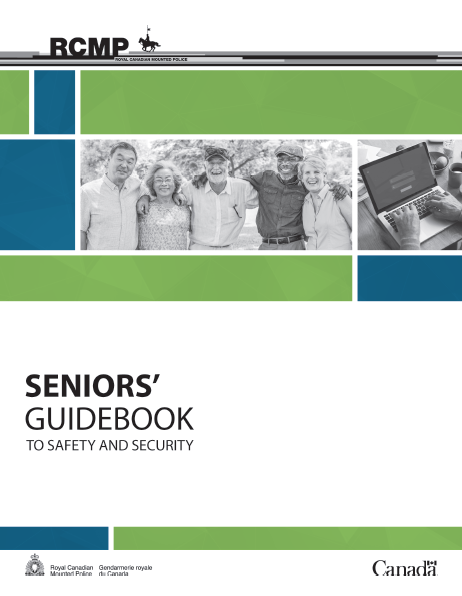 "This guide is for seniors, their family members, caregivers, friends, and anyone else who may find it useful. It isn’t meant to include everything but tries to answer some common concerns when it comes to seniors’ safety and security. Our goal is to raise awareness of seniors’ safety issues to improve their quality of life. The information in this guide can also be used to help people and their loved ones discuss this topic to help recognize potential crime situations and show how to reduce or remove the risk. We hope that readers will find the information useful."
"This guide is for seniors, their family members, caregivers, friends, and anyone else who may find it useful. It isn’t meant to include everything but tries to answer some common concerns when it comes to seniors’ safety and security. Our goal is to raise awareness of seniors’ safety issues to improve their quality of life. The information in this guide can also be used to help people and their loved ones discuss this topic to help recognize potential crime situations and show how to reduce or remove the risk. We hope that readers will find the information useful."
Source: RCMP
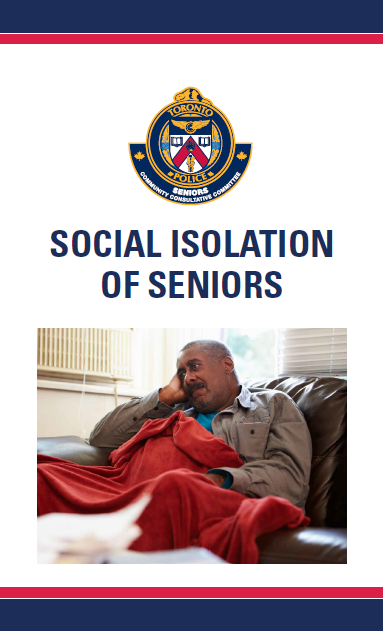 ''Social Isolation is defined as a state of complete or near complete lack of contact between an individual and society. Isolation can be an issue for people of any age, however, as we age, the impact of becoming socially isolated can be more detrimental to our well being. This resource will primarily explore the experience of social isolation as it relates to older adults. The goal is to assist in the recognition of those at risk in the community and to better equip individuals to help out.''
''Social Isolation is defined as a state of complete or near complete lack of contact between an individual and society. Isolation can be an issue for people of any age, however, as we age, the impact of becoming socially isolated can be more detrimental to our well being. This resource will primarily explore the experience of social isolation as it relates to older adults. The goal is to assist in the recognition of those at risk in the community and to better equip individuals to help out.''
Source: Toronto Police Service
The following is part of our project “Increasing Access to Justice for Older Adult Victims of Sexual Assault: A Capacity Building Approach”, funded by the Justice Canada Victims Fund.Learn more about this project or consult the full list of resources
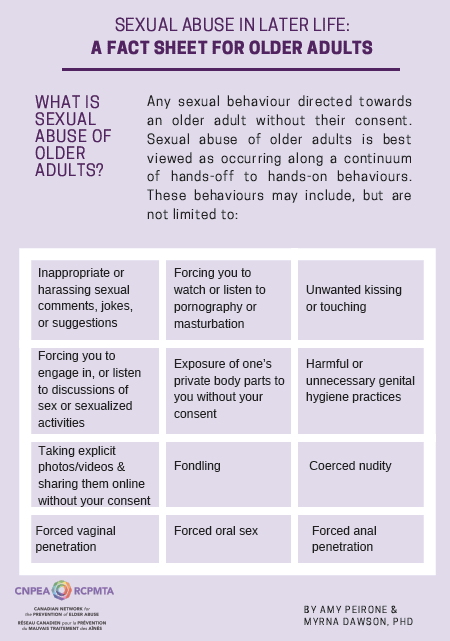
- What is sexual abuse?
- Who are the most likely perpetrators?
- Common feelings and reactions after being harmed sexually
- What to do to stay safe from abuse and increase one's safety
- Additional provincial and territorial resources
See also: Sexual Abuse of Older Adults - A Factsheet for Caregivers, Service Providers, Friends and Families
The following is part of our project “Increasing Access to Justice for Older Adult Victims of Sexual Assault: A Capacity Building Approach”, funded by the Justice Canada Victims Fund.Learn more about this project or consult the full list of resources
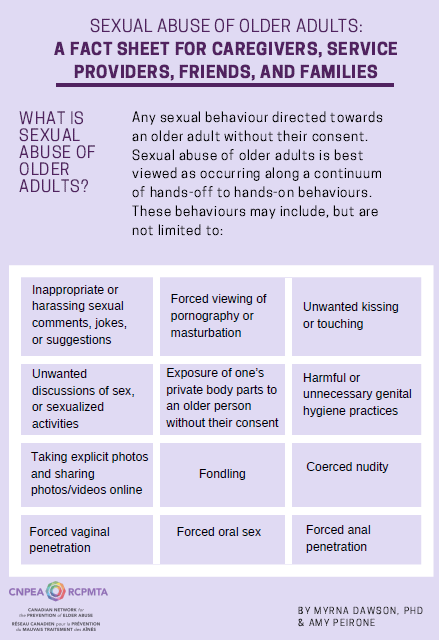
This factsheet addresses:
- What is sexual abuse?
- What are the red flags?
- Who is at risk?
- Who are the perpetrators?
- What to do if you become aware of sexual abuse occurring to an older adult in your family and or in your care.
See also: Sexual Abuse in Later Life - A Factsheet for Older Adults
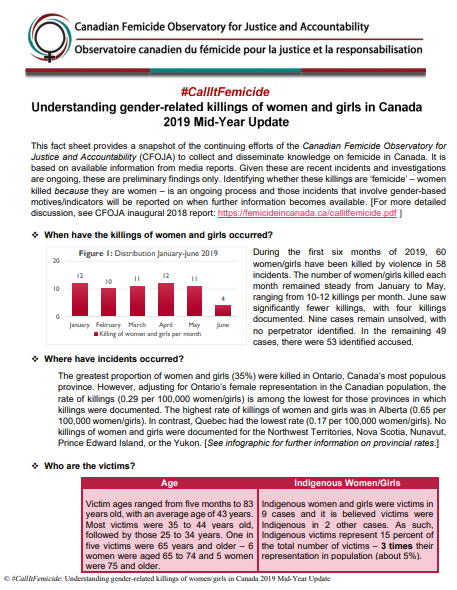 ''This fact sheet provides a snapshot of the continuing efforts of the Canadian Femicide Observatory for Justice and Accountability (CFOJA) to collect and disseminate knowledge on femicide in Canada.
''This fact sheet provides a snapshot of the continuing efforts of the Canadian Femicide Observatory for Justice and Accountability (CFOJA) to collect and disseminate knowledge on femicide in Canada.
It is based on available information from media reports. Given these are recent incidents and investigations are ongoing, these are preliminary findings only. Identifying whether these killings are ‘femicide’ – women killed because they are women – is an ongoing process and those incidents that involve gender-based motives/indicators will be reported on when further information becomes available. [For more detailed discussion, see CFOJA inaugural 2018 report: https://femicideincanada.ca/callitfemicide.pdf ]
Source: Canadian Femicide Observatory for Justice and Accountability
Page 5 of 13
















